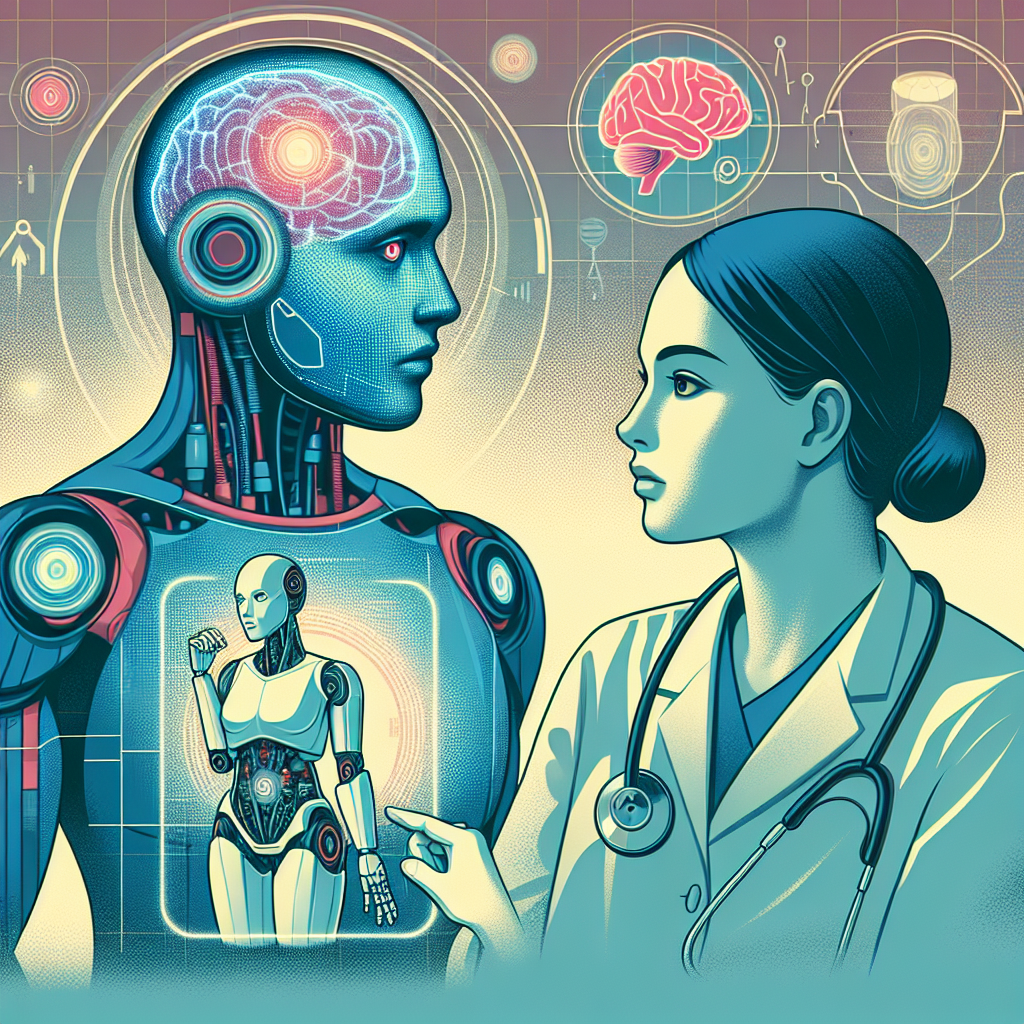Artificial intelligence (AI) has rapidly advanced in recent years, revolutionizing the way we live, work, and interact with the world around us. One area where AI is making a significant impact is in the field of mental health diagnosis. By leveraging the power of machine learning algorithms and data analysis, AI is helping to improve the accuracy and efficiency of mental health assessments, leading to better outcomes for patients.
The traditional methods of diagnosing mental health disorders often rely on subjective assessments by clinicians, which can be influenced by biases and limitations in experience. AI, on the other hand, has the ability to analyze large amounts of data from various sources, such as electronic health records, social media profiles, and even smartphone apps, to identify patterns and trends that may indicate the presence of a mental health disorder.
One of the key advantages of using AI for mental health diagnosis is its ability to process data quickly and efficiently. This can lead to earlier detection of mental health issues, allowing for timely intervention and treatment. AI can also help to personalize treatment plans based on individual characteristics and preferences, leading to more effective outcomes for patients.
AI is also being used to develop new tools and technologies for mental health assessment, such as chatbots and virtual assistants that can provide support and guidance to individuals experiencing mental health issues. These tools can help to increase access to mental health care, particularly in underserved communities where traditional mental health services may be limited.
Despite the many benefits of using AI for mental health diagnosis, there are also concerns about privacy and data security. AI systems rely on large amounts of personal data to make accurate assessments, raising questions about how this information is stored and used. It is important for organizations to implement robust data protection measures to ensure that patient confidentiality is maintained.
Another concern is the potential for AI to perpetuate biases in mental health diagnosis. If the data used to train AI algorithms is not representative of the diverse population, there is a risk that the algorithms may produce biased results. It is essential for developers to be mindful of these issues and take steps to mitigate bias in AI systems.
Despite these challenges, the potential benefits of using AI for mental health diagnosis are substantial. By leveraging the power of machine learning and data analysis, AI has the potential to revolutionize the way mental health disorders are diagnosed and treated, leading to better outcomes for patients.
FAQs:
Q: How accurate is AI in diagnosing mental health disorders?
A: AI has shown promising results in diagnosing mental health disorders, with studies demonstrating high levels of accuracy in identifying patterns and trends that may indicate the presence of a disorder. However, it is important to note that AI should be used as a tool to support clinical judgment rather than replace it entirely.
Q: How is patient data protected when using AI for mental health diagnosis?
A: Organizations that use AI for mental health diagnosis must adhere to strict data protection measures to ensure patient confidentiality. This includes encrypting data, implementing access controls, and regularly auditing systems to detect any potential breaches.
Q: Can AI help to improve access to mental health care?
A: Yes, AI has the potential to increase access to mental health care by providing tools and technologies that can reach individuals who may not have access to traditional mental health services. Chatbots and virtual assistants, for example, can provide support and guidance to individuals experiencing mental health issues.
Q: How can bias be mitigated in AI systems used for mental health diagnosis?
A: Developers must be mindful of biases in AI systems and take steps to mitigate them by ensuring that the data used to train the algorithms is representative of the diverse population. Regular audits and reviews of AI systems can also help to identify and address any biases that may arise.

